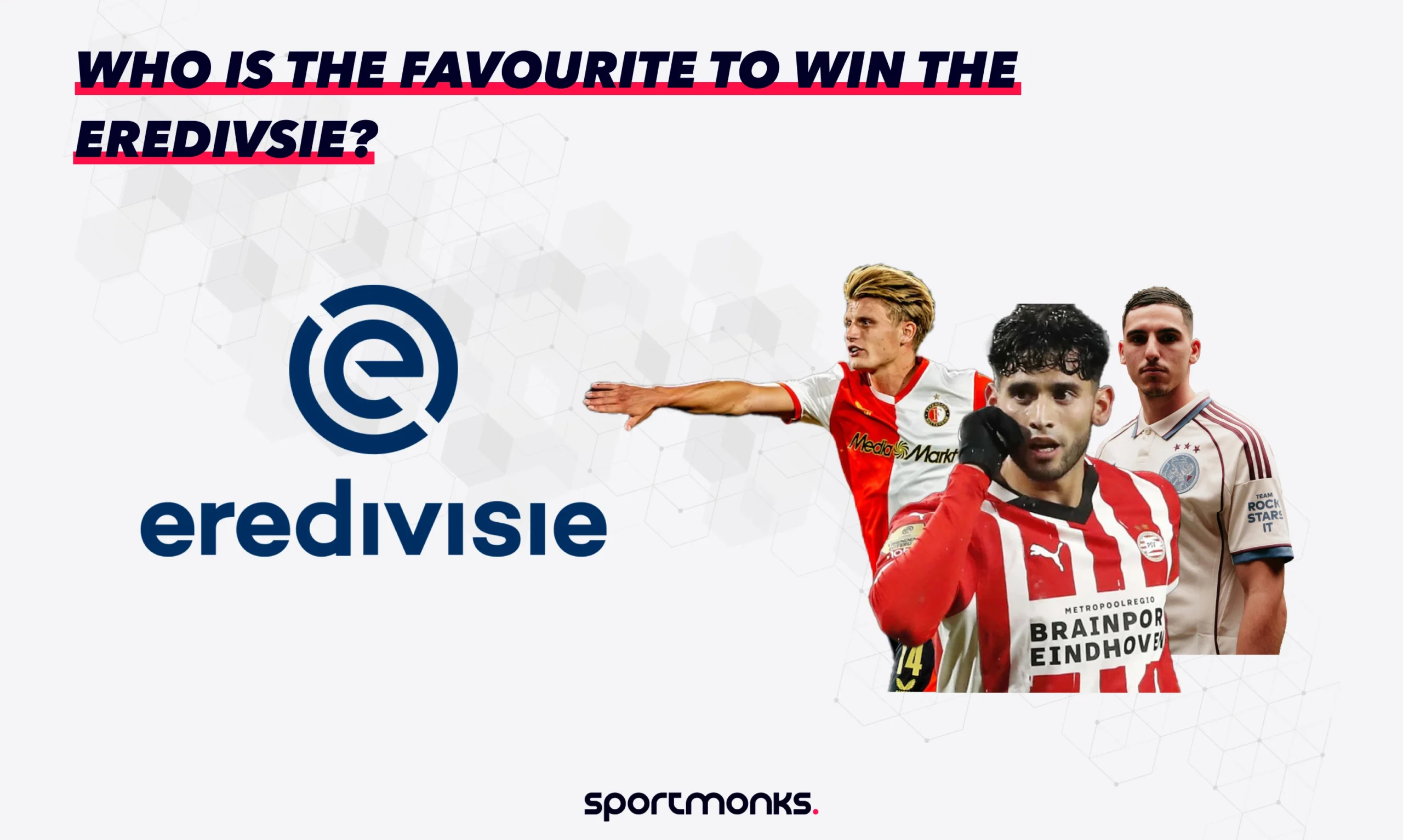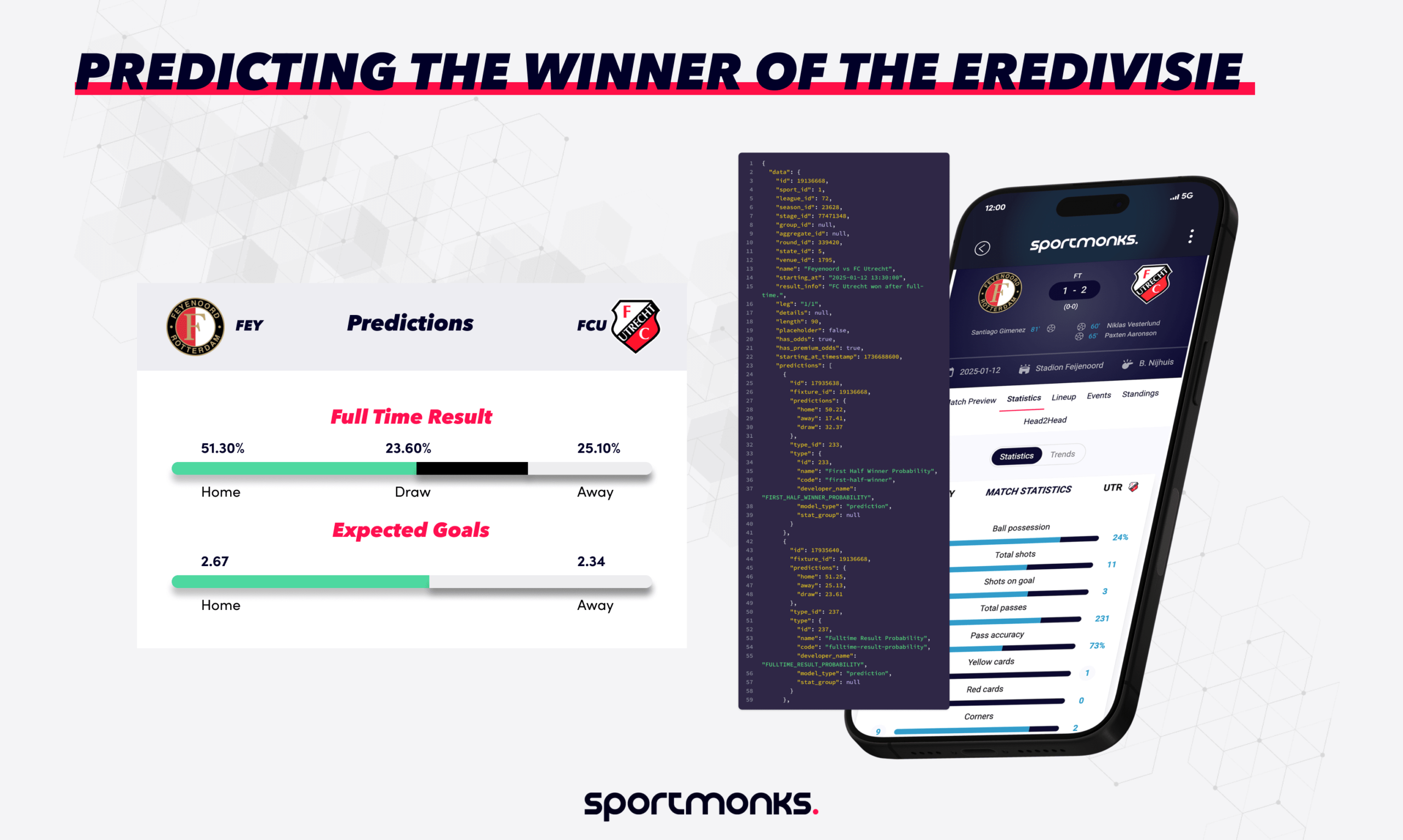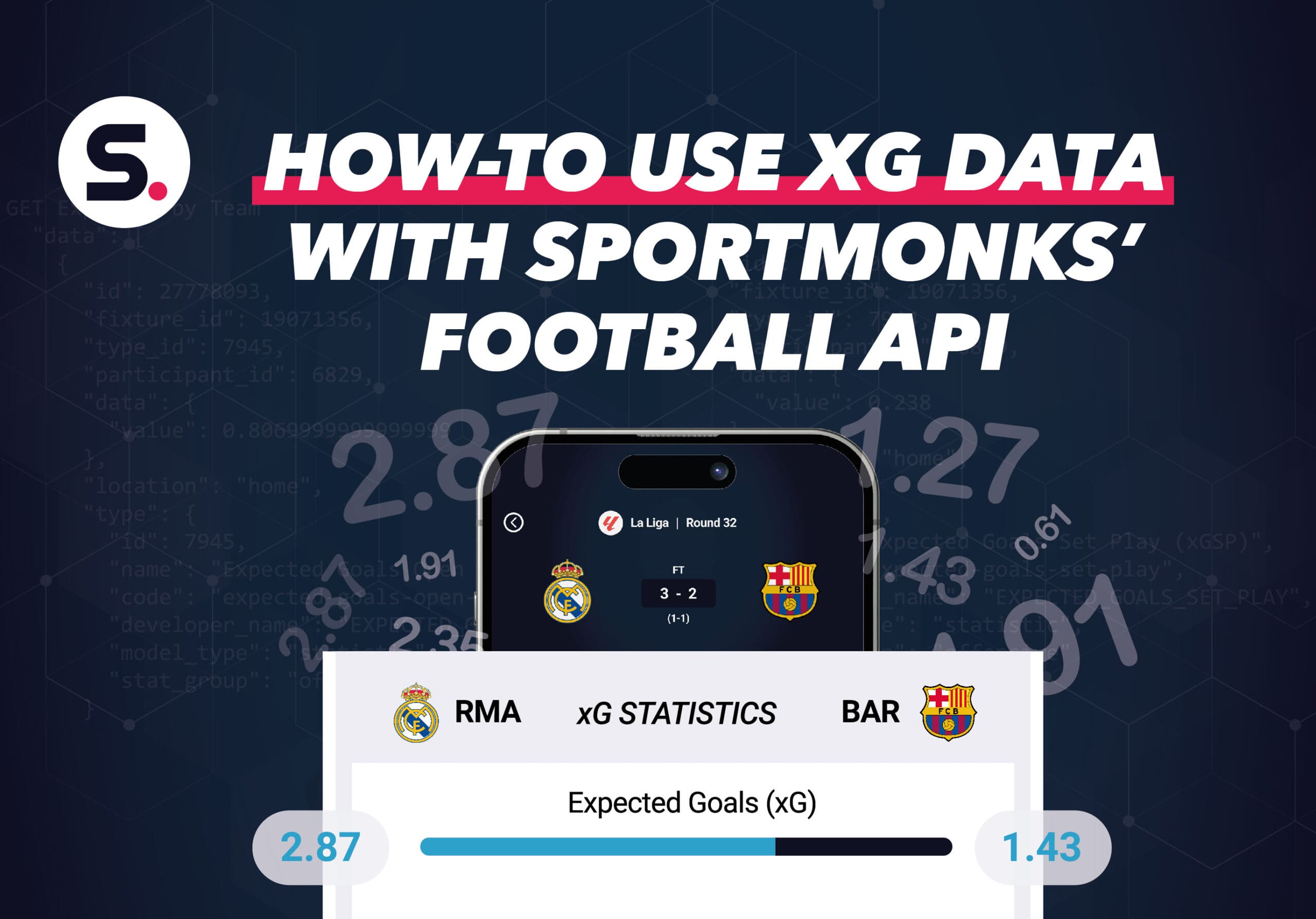
Contents
A look back at last season
The 2024/25 Eredivisie season became one of the most exciting title races in recent memory. PSV Eindhoven won their 26th Dutch league title, making it back-to-back Eredivisie crowns and just their second ever league trifecta (first being between 2003 and 2008). They finished just one point ahead of Ajax, who had been nine points clear with only five matches left to play.
The dramatic climax
In the final match of the season on 18 May, PSV sealed the title with a strong 3-1 win at Sparta Rotterdam, with goals from Perišić, de Jong, and Tillman. Ajax also won their match against Twente 2-0 that same afternoon, but their late effort was not enough to overcome PSV’s fantastic form. Ajax finished the season with 78 points (24 wins, 6 draws, and 4 losses), while PSV ended with 79 points, having scored 103 goals in their 34 matches.
Ajax’s historic collapse
In April, Ajax seemed unstoppable, having won 14 games in a row to go nine points clear of PSV. However, they then had a shocking collapse. In their final five games, Ajax only managed to get two points from four matches. This included a 0-4 defeat at Utrecht and a last-minute equaliser conceded to Groningen in the 99th minute, which mathematically confirmed PSV’s comeback.
Feyenoord and the rest of the pack
While PSV and Ajax were fighting for the title, Feyenoord secured their position as the third-best team, finishing in third place with 68 points. They were well ahead of the teams below them in the race for European qualification. Their season, however, lacked the strong finish seen by PSV and included some instability on the field, as Brian Priske replaced Arne Slot as their coach earlier in the season. Teams like AZ, Utrecht, and Twente were competitive and spirited underdogs, but none came close to challenging the top two teams in the end.
Off-season transfers: Who reinforced or reshaped their title push?
As the Eredivisie transfer window was open from 16 June to 1 September 2025, the top teams took different approaches. PSV focused on strengthening their squad, Ajax completely changed their core players, Feyenoord worked on improving their squad depth, and AZ and Utrecht quietly made their teams stronger. These moves that can be tracked by Sportmonks Transfer API have set the stage for the 2025/26 title race and give new angles for those using Sportmonks’ predictive data.
PSV Eindhoven: Championship continuity through reinforcement
PSV Eindhoven enter the new season not with the panic of reinvention, but with the poise of a champion reinforcing its walls. Fresh off a title-winning campaign, the club has doubled down by adding with intent. Every signing, every loan deal, speaks of a strategy: compete across three competitions, and do it with depth.
Ruben van Bommel, the exciting winger from AZ, was among the first to arrive, a signal that PSV continues to trust young Dutch talent. He was soon followed by Nick Olij, the reliable shot-stopper from Sparta, and Yarek Gąsiorowski, the Polish defender picked up from Valencia, showing a desire to groom talent for the future as much as the now.
In defence, Kilian Sidillia joined from Freiburg, bringing Bundesliga resilience to the backline. Between the posts, Matej Kovář came in on loan from Bayer Leverkusen, filling the gloves left by departing veteran Walter Benítez. Up front, PSV made a statement by landing Alassane Pléa from Gladbach: a seasoned attacker with the versatility and experience to thrive in big European nights.
But reinforcements came with a cost. PSV said goodbye to several cornerstones of their recent success. Luuk de Jong, their captain and talisman, departed, leaving behind not just goals, but leadership. Malik Tillman, Olivier Boscagli, and dynamic winger Noa Lang, who moved to Napoli, all represented vital parts of the club’s identity on the pitch. Their absence will be felt, especially in high-pressure moments.
Still, PSV’s strategy is clear. By bringing in players on multi-year contracts and loans, the club is building continuity while retaining flexibility. Their focus on youth and athleticism suggests that their aggressive, high-pressing style isn’t going anywhere. If anything, it’s being sharpened.
Ajax: A post-collapse shake-up and rebuild
In Amsterdam, the mood couldn’t be more different. Where PSV sought refinement, Ajax needed a reset. After a season that veered into disarray, the club has embraced a full-scale shake-up, one that stretches from the dressing room to the boardroom.
The biggest headline came in their transfer window: Jorrel Hato, the teenage defensive prodigy and a symbol of the club’s future, was sold to Chelsea for a staggering €44 million. With him, Ajax didn’t just lose a key defender, they lost a leader in the making.
That exit kicked off a summer of departures. Jordan Henderson, Borna Sosa, Daniele Rugani, and Kristian Hlynsson all made their exits. Yet, perhaps the more telling sign of Ajax’s internal chaos was the ongoing effort to move on players acquired during the brief and turbulent Sven Mislintat era. Names like Chuba Akpom, Carlos Forbs, and Sivert Mannsverk were placed on the transfer list as part of a club-wide clean-up operation.
In the midst of the chaos, however, green shoots are beginning to appear. Ajax made targeted moves to bring in quality: Oscar Gloukh adds vision and creativity in midfield, Raúl Moro offers flair out wide, and Liverpool’s Jaros strengthens their goalkeeping department.
Off the pitch, the most symbolic move may be the return of club legend John Heitinga, who took over as head coach in May. He won’t be alone, he’ll be working alongside Marcel Keizer in a new long-term vision that extends to 2027. Together, they are tasked with restoring Ajax’s identity: combining academy-grown brilliance with hardened experience, and bringing tactical clarity back to the pitch.
This is more than just a rebuild, it’s a reset. One aimed at bringing Ajax back to its roots, without losing sight of the future.
Feyenoord: Consolidating rather than rebuilding
For Feyenoord, this has been one of the most turbulent and transformative transfer windows in recent years. After a season that exposed both promise and fragility, the Rotterdam giants knew they had to act decisively to reshape their squad, and they did so with bold ambition.
The club wasted no time in targeting attacking firepower, pulling off a statement signing by bringing in last season’s Eredivisie top scorer, Sem Steijn. His arrival, alongside the talented Luciano Valente, marked a clear intent; they were building something new.
But the biggest rebuild came in defence. With key departures leaving holes at the back, the club moved swiftly to secure experienced reinforcements. Tsuyoshi Watanabe and Anel Ahmedhodžić were brought in, not just for their individual quality, but to lead and organise a backline that had been left threadbare. Their presence signals a new defensive era at De Kuip.
The attacking unit didn’t go unnoticed either. Feyenoord bolstered their wings with the arrivals of Gonçalo Borges and striker Casper Tengstedt, injecting pace, flair, and versatility into the forward line. Beyond the big names, a quieter subplot is unfolding: the return of several youth players from successful loan spells. Among them, Leo Sauer stands out. Still only a teenager, he’s viewed by many inside the club as a future star in the making. His return adds a layer of homegrown hope to the narrative.
Yet, for every arrival, there were painful goodbyes. The departures of Igor Paixão to Marseille, David Hancko to Atlético Madrid, Quilindschy Hartman to Burnley, and Antoni Milambo to Brentford marked the end of an era. They were central to Feyenoord’s identity over recent seasons. Their absence will be felt.
Luckily, one thing has remained steady: the coaching staff. With Robin van Persie overseeing the transition, there’s hope that stability off the pitch will translate to clarity on it. His job now is to blend this new-look squad into a cohesive unit.
Feyenoord’s transfer window wasn’t just busy, it was a story of loss, ambition, and rebirth. Whether it sets the stage for silverware or growing pains, one thing is certain: this is a club not content with standing still.
AZ & FC Utrecht: Measured smart-shopping with disruptive potential
AZ made some central purchases, including Isak Jensen from Viborg, Mateo Chávez from Chivas, and some young players returning from their loan spell: Myron van Brederode, Dave Kwakman, Finn Stam, and Lequincio Zeefuik. The club showed a smart use of loans and contract stability. They didn’t sign any big names but brought in solid experience with good value.
FC Utrecht quietly brought back or signed players like Davy van den Berg, Emirhan Demircan, Yoann Cathline, Dani de Wit, Miguel Rodríguez (bought outright), Derry Murkin, and Gjivai Zechiël (on loan). With a capable coach and no major players leaving, their chances of qualifying for Europe remain credible for those who track expected performance using Sportmonks’ pass-type and in-possession data.
What’s at stake this season?
As the 2025/26 Eredivisie season kicks off on 8 August, the stakes are incredibly high for every team, from title challengers to those in the middle of the table.
1. Champions League vs. qualification purse
Only the top two teams in the league get to go straight into the Champions League group stage. The team that finishes third has to go through a qualifying round. After that, spots are available for the Europa and Conference League, but the prize money is much less. The Champions League is a massive financial boost, with UEFA planning to hand out over €2.4 billion to the teams taking part. This is a lot more than the €565 million shared among Europa League clubs. Just a win in the Champions League group stage is worth €2.1 million, and getting to the knockout stage is worth €11 million. These earnings can completely change a club’s budget overnight.
2. National coefficients & European access
Dutch clubs must protect their 6th-place UEFA country ranking to keep their two guaranteed Champions League spots for future seasons. If they drop in the rankings, the third-place team might have a tougher time qualifying for Europe, or the Netherlands could lose spots entirely. This season, teams like PSV, Ajax, Feyenoord, AZ, Utrecht, and even Go Ahead Eagles are all responsible for earning enough points to keep the country’s ranking safe.
3. Financial sustainability & transfer revenues
For Ajax, PSV, and Feyenoord, qualifying for European competitions is essential. Ajax, for example, made nearly €158 million from selling players in the 2022/23 season, with 44% of their income that year coming from transfers. Most other Dutch clubs also rely heavily on player sales to make a profit. A year without the financial exposure of European football could lead to huge operating losses for these clubs.
The role of Sportmonks in Dutch title predictions
Sportmonks is not just a data provider, but a cutting-edge platform that leverages advanced AI-powered predictions and in-depth analytics to forecast the Dutch Eredivisie winner. By analysing real-time stats, player contributions, and team performances, Sportmonks provides actionable insights that help fans, data analysts, and developers make informed decisions. Here’s how we use Sportmonks football data to forecast with precision and transparency.
Integrated data pipeline: From real-time to historical
– Expected-goals (xG): xG data is generated in real-time using Sportmonks’ xG Data API, which calculates metrics like xG, xGoT (on-target), and xGP (penalties) for every Eredivisie match. This data is available as the match happens or after it ends, depending on your subscription plan.
– Player and match data: Injury trackers, transfers, and squad line-ups are updated via various API endpoints. This allows for daily adjustments to a club’s future availability and performance potential.
– Historical data: Sportmonks stores over 20 years of historical match data. This enables our models to be trained on past seasons, including the relationship between expected goal difference and winning the title.
– Transfers and rumors: We track confirmed transfers and now speculative rumors with our new transfer rumors API, monitoring potential shifts in power before they happen. This allows our models to factor in potential changes, such as a top striker joining a title-contending club, and adjust title probabilities in real-time. By analysing comprehensive transfer data, we gain an early warning system for squad changes, providing crucial context and transparency.
Predictions API: Machine learning meets football logic
– Forecasts: Our Predictions API provides pre-match forecasts for various betting markets (e.g., match winner, correct score, over/under). These forecasts use machine learning models that consider team form, head-to-head records, player injuries, and live xG trends.
Real-time model calibration and visualisation
– Live probabilities: Sportmonks’ predictions endpoint provides probability distributions for each match up to 21 days before the game. This data is updated daily until kick-off, allowing our model to be dynamically updated as fixtures get closer.
– Value bets: We use Sportmonks’ Value Bet API to find differences between our model’s predictions and bookmaker odds. This highlights potential value betting opportunities, adding an extra layer of efficiency to our title-probability work.
Who are the current favourites to win the Eredivisie title 2025/26?
As the 2025/26 Eredivisie season kicks off on 8 August, betting markets and data-driven insights point to PSV Eindhoven, Ajax Amsterdam, and Feyenoord Rotterdam as the top contenders for the title. PSV are the clear favourites, with Ajax and Feyenoord poised to challenge, each navigating significant squad changes and tactical shifts. Below, we dive into each team’s outlook, key players, and potential mid-season moves that could shape their title run, leveraging Sportmonks’ advanced analytics to provide a clearer picture of their chances.
Market Odds (Outright Winner)
– PSV Eindhoven: 1.66–1.67 (approx. 60% implied probability)
– Ajax Amsterdam: 3.00–3.25 (30–33% implied probability)
– Feyenoord Rotterdam: 6.00–6.50 (16–17% implied probability)
– Other teams (AZ, Twente, Utrecht, etc.): 26.00–81.00 (less than 5% each)
These odds, consistent across bookmakers like TOTO, Unibet, and bet365, reflect PSV’s dominance, Ajax’s potential, and Feyenoord’s outsider status. Sportsgambler notes, “[Back-to-back champions PSV] are odds-on favourites… Ajax second… Feyenoord is third in the betting.” But what drives these numbers? Let’s break down each team’s prospects using Sportmonks’ data-driven insights.
PSV Eindhoven: Defending champions with a new look
Squad changes and impact
After clinching their 26th Eredivisie title in 2024/25 with 79 points and 103 goals, PSV face a transitional season. The departure of captain Luuk de Jong (free transfer), Olivier Boscagli (free transfer), Walter Benítez (free transfer), Noa Lang (to Napoli for €25.00m), Johan Bakayoko (to RB Leipzig for €18.00m), and Malik Tillman (€35M to Bayer Leverkusen) has stripped the squad of key leadership and attacking flair. To counter this, PSV invested in youth and experience: Ruben van Bommel (€16M from AZ) adds wing dynamism, Yarek Gąsiorowski (from Valencia for €10.00m) and Kiliann Sildillia (from Freiburg for €6.00m) bolster the defense, Alassane Pléa (from Borussia Mönchengladbach for €4.50m) brings attacking versatility, Nick Olij (€3.00M from Sparta) strengthens goalkeeping, and Matej Kovář (loan from Leverkusen) provides depth. These signings aim to maintain PSV’s high-pressing, goal-heavy style under Peter Bosz, who has now won two titles with the club.
Key players
Ricardo Pepi, stepping into de Jong’s role, will be pivotal, supported by Ivan Perišić (17 goal contributions last season) and Ismael Saibari (double-digit goals/assists). The midfield, which contributed 69 goal involvements last season, remains a strength, but integrating new players like van Bommel and Pléa will be critical early on.
Mid-season outlook
PSV’s depth allows them to compete in the Eredivisie, Champions League, and KNVB Beker, but the loss of attacking firepower could lead to early stumbles. If Pepi or Pléa underperform, a mid-season signing of a proven striker may be necessary, especially with Champions League commitments stretching the squad. Sportmonks’ API can track Pepi’s xG and Pléa’s integration, while our Predictions API offers match forecasts to gauge PSV’s title trajectory.
Why they’re favourites
PSV’s 25 wins and 103 goals last season highlight their attacking prowess, and Bosz’s tactical consistency gives them an edge. However, replacing de Jong’s leadership and goals is a challenge that could define their season.
Ajax Amsterdam: Rebuilding under new management
Squad changes and impact
Ajax’s 2024/25 season ended in a historic collapse, squandering a nine-point lead to finish one point behind PSV with 78 points. The sale of defensive prodigy Jorrel Hato to Chelsea for €44M, alongside departures of Jordan Henderson, Borna Sosa, Daniele Rugani, and Kristian Hlynsson, signals a major rebuild. New signings Oscar Gloukh (midfield creativity), Raúl Moro (wing flair), Vítězslav Jaroš (goalkeeping depth), and Joeri Heerkens aim to restore Ajax’s identity under new coach John Heitinga, who replaced Francesco Farioli in May 2025. However, pre-season revealed concerns: only one of 19 goals came from strikers, and Brian Brobbey (four goals in 30 games last season) is currently sidelined with an injury, exposing a lack of attacking depth.
Key players
Gloukh and Moro are expected to drive creativity, while Kenneth Taylor’s midfield presence remains crucial. Without a reliable striker, Ajax’s attack could falter, putting pressure on Heitinga to restore the club’s attacking DNA.
Mid-season outlook
Ajax’s defensive solidity (conceding just 17 goals by mid-season last year) is a foundation, but their goal-scoring issues are a red flag. If Brobbey’s injury lingers or replacements struggle, Ajax may target a striker in the January window. Sportmonks’ xG Data API can monitor forward performances, while our Transfer Rumors API can identify potential targets, helping fans and analysts predict Ajax’s title chances.
Why they’re contenders
Heitinga’s long-term vision and Ajax’s youth academy provide hope, but overcoming last season’s collapse and addressing striker concerns will determine if they can challenge PSV.
Feyenoord Rotterdam: Van Persie’s Revolution
Squad changes and impact
Feyenoord finished third last season with 68 points, showing promise under Brian Priske before a late-season surge (seven-game winning streak, 24 goals). The appointment of Robin van Persie as coach marks a new era, though significant departures i.e., David Hancko (to Atlético Madrid), Igor Paixão (to Olympique Marseille), Quilindschy Hartman (to Burnley), and Antoni Milambo (to Brentford) have reshaped the squad. Key signings include Sem Steijn (€10M from FC Twente, 27 goals and 7 assists last season), Luciano Valente, Gonçalo Borges, Tsuyoshi Watanabe, Anel Ahmedhodžić, Casper Tengstedt, Jordan Bos, and Gaoussou Diarra, alongside the return of youth prospect Leo Sauer. These moves aim to bolster attack and defense, aligning with van Persie’s attacking philosophy.
Key players
Steijn, the 2024/25 Eredivisie top scorer, is a game-changer, supported by Valente and Borges on the wings. Watanabe and Ahmedhodžić provide defensive stability, while Sauer’s potential adds excitement.
Mid-season outlook
Feyenoord’s strong finish last season suggests momentum, but integrating a new squad under van Persie is a challenge. If injuries or European fixtures strain depth, a mid-season signing for midfield or defensive cover could be crucial. Sportmonks’ Predictions API can forecast match outcomes, and the Pressure Index can track Feyenoord’s intensity under van Persie, offering insights into their title potential.
Why they’re contenders
Van Persie’s leadership and Steijn’s goal-scoring prowess make Feyenoord a credible threat, but their success hinges on squad cohesion and avoiding the inconsistency seen last season.
How Sportmonks enhances predictions
Sportmonks’ tools provide a competitive edge for predicting the Eredivisie title race:
– Player contribution model: Tracks individual impacts like Pepi’s xG, Gloukh’s creativity, or Steijn’s goals, helping assess each team’s strengths.
– Predictions API: Offers pre-match forecasts for outcomes, updated daily, to predict how PSV, Ajax, and Feyenoord will fare.
– xG Data API: Analyses attacking efficiency, crucial for monitoring Ajax’s striker issues or PSV’s new forwards.
– Transfer rumors API: Monitors potential mid-season moves, providing early insights into squad changes.
By combining real-time data with historical trends, Sportmonks empowers fans, analysts, and bettors to stay ahead of the title race.
Dark horses to win the Eredivisie 2025/26
While PSV, Ajax, and Feyenoord are the clear favourites, there is one team that stands out as a genuine dark horse for the title chase, with a couple of others who could flirt with a top-three finish.
FC Utrecht (the one genuine dark horse)
Bet365 has Utrecht at generous odds of 12/1 to finish in the top three, which suggests that bookmakers see real potential there, even if they aren’t considered full title contenders.
Utrecht ended the 2024/25 season in fourth place with 64 points, just four points behind Feyenoord. They have kept key players like Yoann Cathline and Miguel Rodriguez, who have now signed with the club permanently after a loan spell. In short, Utrecht has the best chance of getting into the top three, and if Ajax or PSV were to have a bad spell, they might just have a chance to challenge for the title. With the extra revenue from European football already coming in (after beating Sheriff Tiraspol in a qualifying match), their momentum is real.
AZ Alkmaar (long shot with pedigree)
AZ’s odds are around 22/1, the strongest after the “Big Three.” This reflects their consistent performance.
AZ have often finished in the top four, and even in seasons when they were not near the top three, they still had a good expected-goals difference in their final ten matches. This suggests they can perform better than expected if the pressure is right and they avoid injuries. AZ may not be title contenders on paper, but their consistent over-performance and smart squad planning make them one of the few teams outside of the elite with a real statistical chance.
FC Twente (too much variability without their talisman)
Twente’s title odds of 40/1 show that they can be an explosive team, but history is not on their side. Only Twente themselves (in 2009/10) and Haarlem (in 1986) have won the Eredivisie outside the “Big Three” since the 1960s.
They lost Sem Steijn, their key player who scored 24 goals in 2024/25, to Feyenoord. Their small transfer budget left them with limited ability to change their system during the season.
Use Sportmonks to stay ahead in Eredivisie predictions
Sportmonks gives fans, analysts, and developers powerful tools to accurately predict Eredivisie outcomes. Our football API provides real-time and historical data, while AI-driven insights help you make better decisions. Here’s how Sportmonks helps you stay ahead:
– Comprehensive data: Access live scores, match statistics, player performance, and over 20 years of historical data for in-depth analysis.
– Predictions API: Use AI-powered forecasts for match winners, total goals, and more, which are based on team form, injuries, and Expected Goals (xG).
– Advanced metrics: Make use of xG and the Pressure Index to judge team and player performance in high-pressure situations.
– Real-time updates: Daily data updates, including injuries and line-ups, ensure your predictions are always current.
– Customisable plans: You can tailor your data access with plans like the European Plan (starting at €39/month) or create custom options just for Eredivisie.
– Practical applications: The data is ideal for betting, fantasy football, and analytics, with tools like the Value Bet API to help you spot good opportunities.
Stay ahead with Sportmonks’ actionable insights and flexible solutions for the 2025/26 Eredivisie season.
Predict the Eredivisie like a pro
From dramatic title races to underdog breakthroughs, the 2025/26 season is shaping up to be unforgettable. With Sportmonks, you get real-time scores, historical data, advanced metrics like xG, and AI-powered forecasts, all in one platform. Whether you’re building a predictive app, managing a fantasy team, or simply want smarter insights, we’ve got you covered.
Tap into Sportmonks’ Eredivisie data and stay one step ahead this season.







![Football APIs: How to select the right football data provider [2025]](https://www.sportmonks.com/wp-content/uploads/2020/11/BLOG-How-to-select-the-right-football-data-provider-2025-2-scaled.webp)